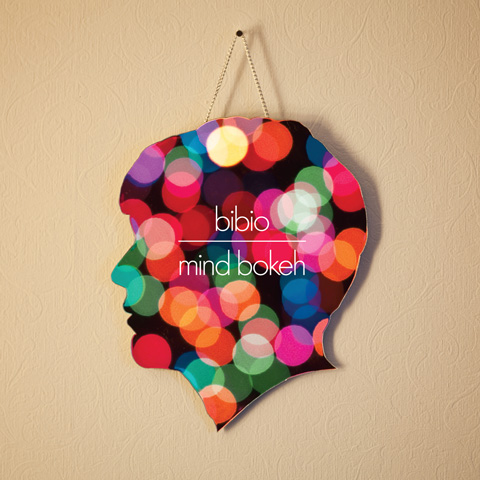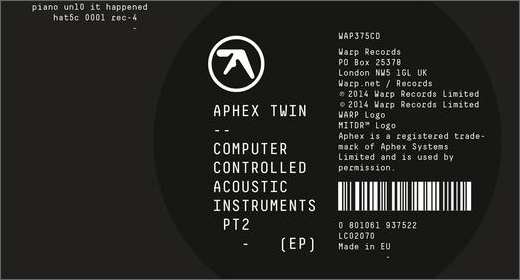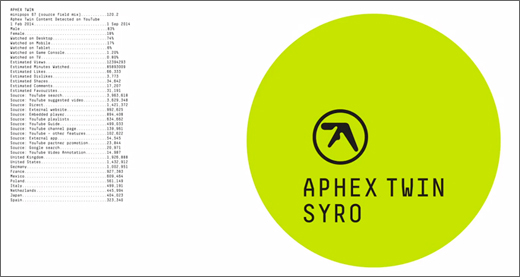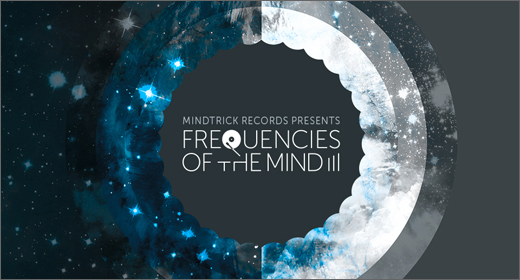With this album Bibio is all about taking on different personas and having a ball, from coldly disjointed staccato love ballads to wise-ass rhymes sung at a break neck pace, a scant few bpm’s short of rapping, the vocals contribute much of Mind Bokeh’s MPD charm.
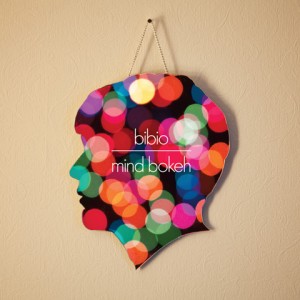
[Purchase] Mind Bokeh is the fifth full-length from Stephen Wilkinson, a.k.a. Bibio, and his second release on Warp Records. More important than any of that industry minutia, this is the second album of the genre-liquefying style Bibio debuted in 2009. If you have been under a rock with no wi-fi for the last few years let Igloo clue you in, Bibio has pulled a butterfly effect on the world of underground electronic music. Originally known for crafting instrumental and beat less fey folk music for analog androids, Bibio flipped the script on expectations of his Warp debut, emerging as a one man dance party of multi-platform vocal electronica. This style was instantly beloved by folktronica purists and eagerly embraced by the general music community. Most folks just seemed to say “Yup, that’s the dope shit, more of that please!” Giving the people what they want, Mind Bokeh follows a similar template to Ambivalence Avenue with a little fine-tuning and a lot of playful experimentation.
On the production chores, Wilkinson has only grown more fluid at melding Dilla style hip-hop, vocals, and band-oriented compositions with the processed instrumentation and home-made field recordings that defined his early sound. The only real departure is the absence of what one would call “folkish” elements. Perhaps because of the long shadow cast by his early work on Mush records, Stevenson has shed not only the composting six string samples that made him famous, but even the pastoral psychedelia of Ambivalence Avenue has hit the cutting room floor. In its place is an eclectic blend of up-beat world music and classic electro, evocative of late 60’s production music. The vintage synth lines in particular sound inspired by the Library Music of Bruce Hack and Alan Hawkshaw, old sound tracks designed to tell stories without words.
Fortunately, there is no shortage of words on this album. All except two of Mind Bokeh‘s twelve songs feature vocal adornment. Wilkinson seems more confident behind the mic, exploring a variety of approaches and often emoting a confident swagger that his first singing experiments lacked. Swaddled in the same voluminous cloaks of warm filterization that covers all the other instruments, most of the vocals are semi-ironic takes on 70’s soul. With this album Bibio is all about taking on different personas and having a ball, from coldly disjointed staccato love ballads to wise-ass rhymes sung at a break neck pace, a scant few bpm’s short of rapping, the vocals contribute much of Mind Bokeh‘s MPD charm.
Before getting into any type of detailed play-by-play analysis of any individual tracks, I want to say that this album contains one absolute dud; other than that it is totally brilliant. The culprit is Bibio’s first overt rocker “Take Your Shirt Off,” a pedestrian four/four house beat saddled with some grunge-light distorted guitar wankery. The only redeeming quality about this song is Wilkinson’s vocal performance; a snide and slinky croon that leap-frogs from one catchy hook about fighting and night clubs, to well… some more catchy hooks about night clubs and fighting. I am sure this track could end up being a dance floor favorite. However, when juxtaposed against the intricately nuanced programming on the rest of the album “Take Your Shirt Off” is a one dimensional joke that sticks out like a sore thumb.
Every other nano-second is great, so much so that it is hard to isolate them into individual moments. The opener “Excuses” slowly unfolds from a faint wash of spooky jamming into a dizzying blend of delicate IDM and vibrant singing. “K is for Kelson” is an inspired interpretation of bossa nova, with some impressive rope dancing on the percussion. The titular track and “St. Christopher” forgo the use of vocals, creating hazy soundscapes of spectacular beauty. Broad descriptions like these miss the true genius of Bibio. They miss that one note that is five decibels louder then everything else, so it whizzes past the listener like a 3D special-effect. Or the way Wilkinson’s intonation while singing the word “flowers” references an older song. It is these little gestures and flourishes that elevate Mind Bokeh to greatness.
There seems to be no end in sight to the talents of Bibio. While more focus is placed on his unique manner of processing instruments than the musicianship itself, he is a very capable composer on a half dozen instruments. Judging by Mind Bokeh, his chops as a vocalist and producer could outstrip his considerable skill with all of those. Who would have envisioned little old Bibio evolving from a finger picking folkie to this Bowie’esq chameleon, a pop superstar who actually makes decent music. We are lucky to have him as one of the standard bearers for progressive music. Thanks for making sure that listening is not a passive experience. (Article originally published February 26, 2011).






